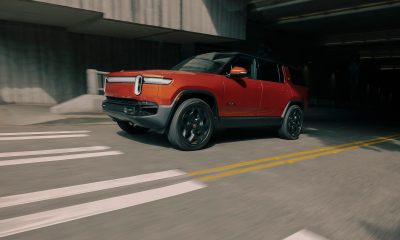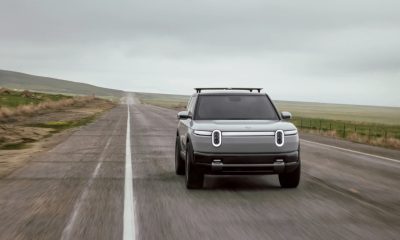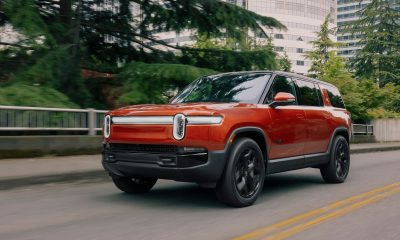Rivian Automotive Inc. is expected to price its initial public offering (IPO) later today, November 9, 2021. Morgan Stanley, Goldman Sachs, and J.P. Morgan currently stand as Rivian’s underwriters for the company’s debut. And based on filings with the Securities and Exchange Commission (SEC), Rivian is looking to enter the public markets in a big way — and it is setting its ambitions very high.
Target Valuation
Rivian has disclosed that it is targeting a valuation above $65 billion in its IPO, with shares priced between $72 and $74. Such a valuation is ambitious, as it would make Rivian’s market cap just a bit lower than veterans such as General Motors ($84.82 billion) and Ford Motor Company ($79.65 billion), the latter being a key investor in the truck maker. Similar to fellow electric vehicle maker Tesla, which currently reached a market cap above of over $1 trillion, Rivian’s valuation target is founded on the idea that the company may see a meteoric rise in the coming years.
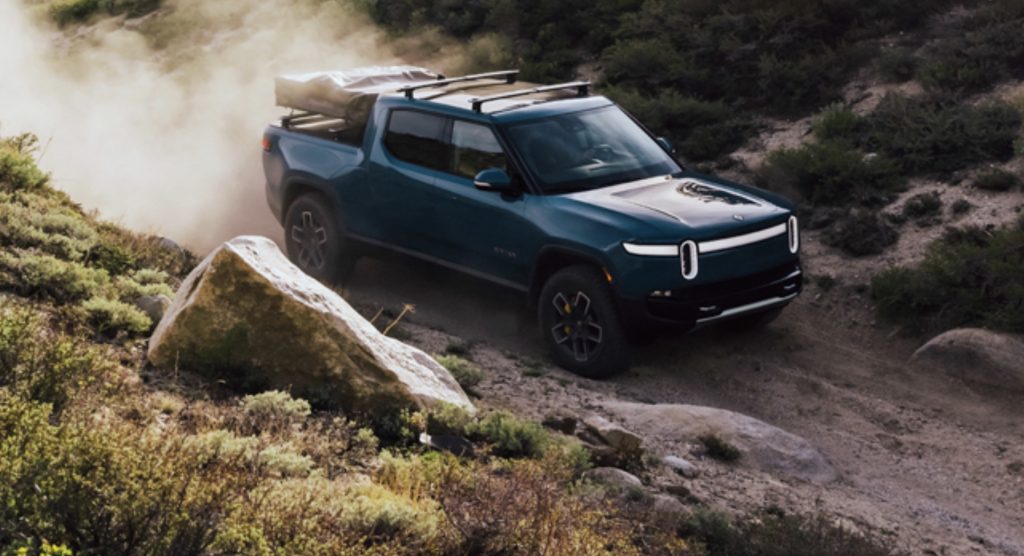
If Rivian’s shares end up selling at the top of their marketed range, the company could make history as the seventh-biggest US IPO on record, according to Bloomberg. It would also overtake longtime players in the auto segment, such as Japanese carmakers Honda Motor Co., which has a market cap of $53 billion, and French automaker Renault SA, which is valued at a conservative $11 billion.
The Finances So Far
Rivian’s S-1 filing with the SEC has provided a glimpse of the company’s finances so far. Just as expected, and similar to fellow electric vehicle makers that are just starting out, Rivian is currently burning cash, with heavy investments in R&D and high operating costs. This is likely due to the fact that the company is still learning the ropes when it comes to mass-producing its three vehicle offerings, one of which has an order for 100,000 units from Amazon, the world’s premier e-commerce site.
Rivian currently employs over 8,000 people across multiple facilities in Arizona, California, Michigan, Illinois, Vancouver, Canada, and the UK. And as the company approached the production of the R1T pickup truck and R1S SUV, its losses grew. Rivian posted a net loss of $994 million from January to June 2021, more than double the $377 million net loss it posted for the first half of 2020. Rivian’s R&D expenses are also on the rise, with the company spending $683 million in Q1 and Q2 2021. In comparison, its R&D cost for 2020 stood at $766 million. Despite this, Rivian still has about $3.6 billion in cash on its balance sheet.

What Analysts are Saying
Rivian is quite unique among EV startups today because its already has a sure customer in Amazon, which has ordered 100,000 units of an all-electric delivery van. That being said, New Street Research analyst Pierre Ferragu stated in a note on Monday that Rivian may end up facing a “natural ceiling” of 300,000 to 400,000 units per year, partly due to the price range of its consumer vehicles, the R1T pickup truck and the R1S SUV. The R1T currently starts at $67,500 for its base model, while the R1S starts at $70,000.
“Above $70,000, the global addressable market for Rivian’s SUV and pickup is less than 1.5 million units, and it will be a crowded space,” Ferragu wrote.
Ivan Drury, a senior analyst at Edmunds, highlighted that Rivian may face an uphill climb when ramping its first vehicles, especially considering that the chip crisis is still ongoing. “It’s difficult enough for established automakers, let alone a new one. Couple that with this new issue the entire industry is dealing with, the chip crisis, that just adds another layer of complexity,” Drury noted.
Rivian’s Production Plans
Recent reports have noted that Rivian is currently focusing its resources on delivering the first batch of its Amazon delivery vans. This makes sense considering the volume of orders it has received from the e-commerce giant, but this strategy could also result in the R1T and R1S being ramped at a more deliberate pace. So far, Rivian has noted that it has received just over 55,000 pre-orders for the R1T and R1S. And since starting deliveries of the R1T, the company has only delivered 156 units of the all-electric pickup truck, “nearly all” of them to Rivian employees.
Rivian’s SEC filing has provided a bit more detail about the R1T and R1S’ rather deliberate ramp. According to the document, the company expects to fill its pre-order backlog of approximately 55,400 R1 vehicles by the end of 2023. Previous reports also note that Rivian is expected to deliver the first 10,000 units of its Amazon delivery vans by the end of 2022, with the entire 100,000-unit order being completed by the end of the decade.
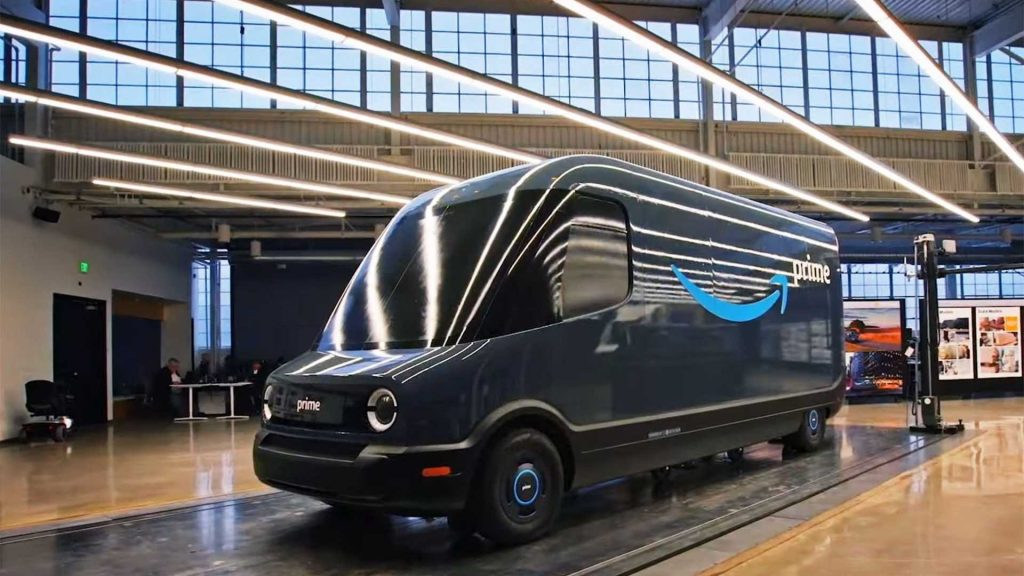
Legal Challenges to Date
Similar to other automakers, Rivian is also involved in some legal challenges. Among the more notable ones involve fellow EV maker Tesla, which has filed a suit against Rivian last year over the alleged theft of intellectual property related to recruitment, bonus and compensation plans for sales personnel, and manufacturing project management systems. A later lawsuit from Tesla also alleged that the truck maker was acquiring core technology related to its upcoming 4680 cells, which was deemed by the Silicon Valley-based company as the “most essential element for any electric vehicle.”
More recently, Laura Schwab, who was the first female President in luxury automaker Aston Martin’s history, also filed a suit against Rivian over alleged gender discrimination. Schwab served as Rivian’s Vice President of Sales and Marketing during her tenure with the company. But according to the former Rivian executive, she was routinely excluded from meetings despite her experience in the auto industry, and her warnings about the R1T and R1S’ pricing and public targets were largely ignored. Finally, Schwab noted that she was terminated by Rivian just before it went public, which effectively made her lose “millions of dollars in unvested equity on the eve of the company’s IPO.”
Conclusion
With electric vehicle maker Tesla joining the trillion-dollar club, numerous investors are now looking towards the “next Tesla.” And while not all EV startups have succeeded — hydrogen truck company Nikola is a good cautionary tale — companies like Rivian and Lucid Motors do seem to have the makings of a legitimate, and potentially profitable long-term business. This was something highlighted by Pitchbook senior mobility analyst Asad Hussain, who noted that “Rivian’s premium market valuation reflects its ownership of the entire value chain and freedom to innovate without dealing with stranded assets. Between Rivian and Lucid, the market finally has credible candidates for ‘the next Tesla.”
Would you consider investing in Rivian? Sound off in the comments below.
Don’t hesitate to contact us with news tips. Just send a message to tips@teslarati.com to give us a heads up.
News
Tesla begins Robotaxi certification push in Arizona: report
Tesla seems serious about expanding its Robotaxi service to several states in the coming months.

Tesla has initiated discussions with Arizona transportation regulators to certify its driverless Robotaxi service in the state, as per a recent report from Bloomberg News. The move follows Tesla’s launch of its Robotaxi pilot program in Austin, Texas, as well as CEO Elon Musk’s recent comments about the service’s expansion in the Bay Area.
The Arizona Department of Transportation confirmed to Bloomberg that Tesla has reached out to begin the certification process for autonomous ride-sharing operations in the state. While details remain limited, the outreach suggests that Tesla is serious about expanding its driverless Robotaxi service to several territories in the coming months.
The Arizona development comes as Tesla prepares to expand its service area in Austin this weekend, as per CEO Elon Musk in a post on X. Musk also stated that Tesla is targeting the San Francisco Bay Area as its next major market, with a potential launch “in a month or two,” pending regulatory approvals.
Tesla first launched its autonomous ride-hailing program on June 22 in Austin with a small fleet of Model Y vehicles, accompanied by a Tesla employee in the passenger seat to monitor safety. While still classified as a test, Musk has said the program will expand to about 1,000 vehicles in the coming months. Tesla will later upgrade its Robotaxi fleet with the Cyercab, a two-seater that is designed without a steering wheel.
Sightings of Cybercab castings around the Giga Texas complex suggests that Tesla may be ramping the initial trial production of the self-driving two-seater. Tesla, for its part, has noted in the past that volume production of the Cybercab is expected to start sometime next year.
In California, Tesla has already applied for a transportation charter-party carrier permit from the state’s Public Utilities Commission. The company is reportedly taking a phased approach to operating in California, with the Robotaxi service starting with pre-arranged rides for employees in vehicles with safety drivers.
News
Tesla sets November 6 date for 2025 Annual Shareholder Meeting
The automaker announced the date on Thursday in a Form 8-K.

Tesla has scheduled its 2025 annual shareholder meeting for November 6, addressing investor concerns that the company was nearing a legal deadline to hold the event.
The automaker announced the date on Thursday in a Form 8-K submitted to the United States Securities and Exchange Commission (SEC). The company also listed a new proposal submission deadline of July 31 for items to be included in the proxy statement.
Tesla’s announcement followed calls from a group of 27 shareholders, including the leaders of large public pension funds, which urged Tesla’s board to formally set the meeting date, as noted in a report from The Wall Street Journal.
The group noted that under Texas law, where Tesla is now incorporated, companies must hold annual meetings within 13 months of the last one if requested by shareholders. Tesla’s previous annual shareholder meeting was held on June 13, 2024, which placed the July 13 deadline in focus.
Tesla originally stated in its 2024 annual report that it would file its proxy statement by the end of April. However, an amended filing on April 30 indicated that the Board of Directors had not yet finalized a meeting date, at least at the time.
The April filing also confirmed that Tesla’s board had formed a special committee to evaluate certain matters related to CEO Elon Musk’s compensation plan. Musk’s CEO performance award remains at the center of a lengthy legal dispute in Delaware, Tesla’s former state of incorporation.
Due to the aftermath of Musk’s legal dispute about his compensation plan in Delaware, he has not been paid for his work at Tesla for several years. Musk, for his part, has noted that he is more concerned about his voting stake in Tesla than his actual salary.
At last year’s annual meeting, TSLA shareholders voted to reapprove Elon Musk’s compensation plan and ratified Tesla’s decision to relocate its legal domicile from Delaware to Texas.
Elon Musk
Grok coming to Tesla vehicles next week “at the latest:” Elon Musk
Grok’s rollout to Tesla vehicles is expected to begin next week at the latest.

Elon Musk announced on Thursday that Grok, the large language model developed by his startup xAI, will soon be available in Tesla vehicles. Grok’s rollout to Tesla vehicles is expected to begin next week at the latest, further deepening the ties between the two Elon Musk-led companies.
Tesla–xAI synergy
Musk confirmed the news on X shortly after livestreaming the release of Grok 4, xAI’s latest large language model. “Grok is coming to Tesla vehicles very soon. Next week at the latest,” Musk wrote in a post on social media platform X.
During the livestream, Musk and several members of the xAI team highlighted several upgrades to Grok 4’s voice capabilities and performance metrics, positioning the LLM as competitive with top-tier models from OpenAI and Google.
The in-vehicle integration of Grok marks a new chapter in Tesla’s AI development. While Tesla has long relied on in-house systems for autonomous driving and energy optimization, Grok’s integration would introduce conversational AI directly into its vehicles’ user experience. This integration could potentially improve customer interaction inside Tesla vehicles.
xAI and Tesla’s collaborative footprint
Grok’s upcoming rollout to Tesla vehicles adds to a growing business relationship between Tesla and xAI. Earlier this year, Tesla disclosed that it generated $198.3 million in revenue from commercial, consulting, and support agreements with xAI, as noted in a report from Bloomberg News. A large portion of that amount, however, came from the sale of Megapack energy storage systems to the artificial intelligence startup.
In July 2023, Musk polled X users about whether Tesla should invest $5 billion in xAI. While no formal investment has been made so far, 68% of poll participants voted yes, and Musk has since stated that the idea would be discussed with Tesla’s board.
-

 Elon Musk1 week ago
Elon Musk1 week agoTesla investors will be shocked by Jim Cramer’s latest assessment
-

 Elon Musk3 days ago
Elon Musk3 days agoElon Musk confirms Grok 4 launch on July 9 with livestream event
-

 Elon Musk18 hours ago
Elon Musk18 hours agoxAI launches Grok 4 with new $300/month SuperGrok Heavy subscription
-

 News7 days ago
News7 days agoTesla Model 3 ranks as the safest new car in Europe for 2025, per Euro NCAP tests
-

 Elon Musk2 weeks ago
Elon Musk2 weeks agoA Tesla just delivered itself to a customer autonomously, Elon Musk confirms
-

 Elon Musk1 week ago
Elon Musk1 week agoxAI’s Memphis data center receives air permit despite community criticism
-

 Elon Musk2 weeks ago
Elon Musk2 weeks agoTesla’s Omead Afshar, known as Elon Musk’s right-hand man, leaves company: reports
-

 News2 weeks ago
News2 weeks agoXiaomi CEO congratulates Tesla on first FSD delivery: “We have to continue learning!”



